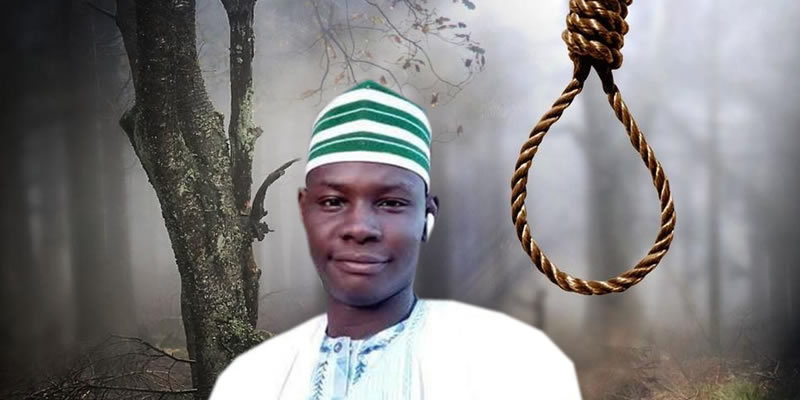
.
Urgent Calls for Reform to Protect Religious Freedom
.
By Toyosi Clement
Blasphemy, the act of disrespecting God or religious beliefs, has sparked controversy in Nigeria, where blasphemy laws are not only prevalent but also carry severe penalties. Nigeria is one of 79 countries with blasphemy laws, and it is one of seven countries that punish blasphemy with death. The consequences of these laws have manifested themselves in shocking incidents such as the murder of student Deborah Samuel, the imprisonment of Rhoda Jatau, and the case of Islamic gospel musician Yahaya Sharif-Aminu, highlighting Nigeria’s blasphemy laws’ consistent failures.
.
Nigeria’s blasphemy laws, which were established during the colonial era and have persisted since independence, have been criticised by both domestic and international entities, including the US Commission on International Religious Freedom, the British High Commissioner for Nigeria, and the European Parliament.
.
The inherent bias towards Islam is one of the primary concerns with Nigeria’s blasphemy laws. While there have been reports of Muslim persecution, the persecution of Christians in the northern region is cause for concern. Despite Section 204 of the Nigerian criminal code, which prescribes two years imprisonment for blasphemy, Sharia courts in 12 northern states have had jurisdiction over blasphemy cases since 2001. This calls into question Nigeria’s secular constitution, because Sharia laws grant Islam de facto status, allowing violence and death to be imposed on those accused of blasphemy. Examples such as the public lynching of student Deborah Samuel show how these laws are applied in a biassed manner, making it difficult for religious minorities to present their cases fairly.
.
In Nigeria, blasphemy laws have normalised and perpetuated violence to justify disrespect for one’s religion. Deborah Samuel, a schoolgirl stoned to death for thanking Jesus on WhatsApp, exemplifies this troubling trend. The video of her murder, which was widely circulated online, sparked widespread outrage and condemnation from various political and civil organisations, including the Christian Association of Nigeria, the British High Commissioner to Nigeria, and President Muhammadu Buhari. The graphic nature of the video, combined with religious chants, demonstrates not only the perpetuation of religious violence, but also its glamorization. This trend contributes to the lack of strong evidence in blasphemy claims and poses a serious threat to religious freedom and the safety of religious minorities.
.
Power abuse is common in Nigeria, with violent mobs frequently taking matters into their own hands, as seen in Deborah Samuel’s case. Perpetrators of such violence rarely face legal consequences, contributing to an environment of lawlessness. Blasphemy trials are uncommon, slow, and devoid of evidence, as demonstrated by the cases of Yahaya Sharif-Aminu and Rhoda Jatau. The former, sentenced to death for praising an imam, faced public backlash, forcing him into hiding, while the latter was imprisoned for 19 months for condemning Deborah Samuel’s murder. These cases highlight the power imbalance in blasphemy accusations, which frequently leads to violence and legal uncertainty.
.
Fundamentally, Nigeria’s blasphemy laws raise concerns about the country’s political identity and tolerance for religious ideologies. These laws cause more violence than justice and have received widespread criticism both domestically and internationally. The prevalent culture of impunity surrounding religious-related crimes, particularly against religious minorities, aggravates the situation. Urgent reform is required to address these issues within Nigeria’s legal system while also preserving the constitutionally guaranteed freedom of religion.
.
Leave a Reply